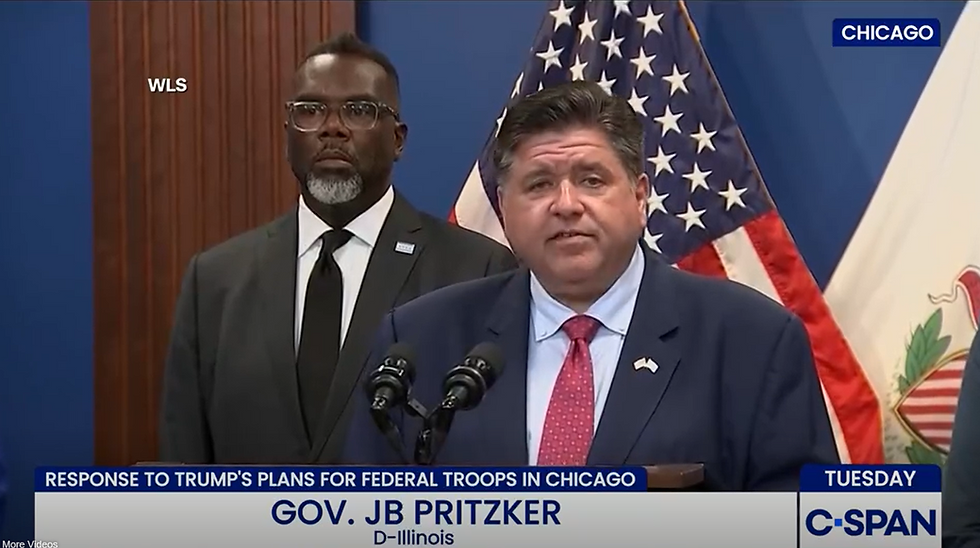Posse Comitatus: How This Law Helped California Litigate the Deployment of the National Guard to Los Angeles, and Why a Workaround is Being Considered for Chicago
- Staff Writer

- Sep 3, 2025
- 3 min read

As news filters in about the possible deployment of Texas National Guard Troops to Chicago, against the vehement objections of Illinois Governor JB Pritzker, let’s take a minute to understand the legal framework behind the administration’s actions in deploying Guard troops, especially since a judge recently struck down their actions in California.
The Basic Rule
The Posse Comitatus Act (PCA) (literal meaning — “power of the county”) is a long-standing law that keeps the federal military out of day-to-day policing in the United States. Federal troops (and National Guard units that have been federalized) generally cannot make arrests and control traffic or crowds unless a specific law clearly allows it.
Role of the National Guard
The National Guard is a unique, community-based military force with a dual mission to serve both their state and the nation. Composed of part-time "citizen-soldiers" who hold civilian jobs, the Guard's mission is to respond to natural disasters, civil disturbances, and other emergencies at the state level under their governor's command, and to fight and win wars for the country as part of the U.S. Army or Air Force when called up for federal service.
The Guard wears three “hats.”
Under Title 10 (federal control), the Guard is part of the federal military.
Under State Active Duty Status, the Guard carries out missions under state command and control, and with state funding and benefits.
Under Title 32, the Guard remains under state command and control but can perform federal missions, is paid with federal funds, and receives federal benefits. Because Guard personnel are under state control, they have not been federalized and are not subject to the Posse Comitatus Act. That means they are not barred from participating in civilian law enforcement activities.
The Loophole of the Insurrection Act.
The Insurrection Act is a federal law that allows the U.S. President to deploy the military and federalized National Guard to suppress domestic insurrections, rebellions, and civil unrest where state and local authorities are unable or unwilling to enforce federal law. It provides the president with broad authority, acting as an exception to the Posse Comitatus Act. Without invoking it, the PCA’s default is “no soldiers as cops”
What Happened in California
In Los Angeles, a federal judge ruled that the summer deployment of about 4,000 National Guard plus 700 U.S. Marines violated the PCA because troops were used for policing tasks like crowd and traffic control and to bolster immigration/drug raids. The court blocked those roles, saying that the National Guard cannot do police work. This matters because the California order now serves as a fresh citation for any challenge to similar deployments in other states.
The Plan For Chicago
On Sept. 2, President Trump said he would send the National Guard to Chicago, triggering immediate opposition from Governor Pritzker and Chicago Mayor Brandon Johnson. What is happening on the ground is not immediately clear.
Pritzker said the administration has begun staging personnel in the Chicago area and indicated Texas National Guard units were being readied, implying a “Title 32” approach that would keep them under Texas’s command and thus outside the PCA. Texas Governor Greg Abbott’s office denied that the Texas Guard is preparing to deploy to Illinois.
How Title 32 Could Be Used
Using Title 32 can function as a workaround to PCA limits because Guard members remain under a governor’s control while performing a federally requested mission. Analysts have warned this can sidestep both PCA and the Insurrection Act if used for law-enforcement-style tasks. Legal challenges are almost inevitable if Title 32 troops are used for actual policing.
Do States Have to Agree to Out-of-State Guards?
Typically, interstate Guard deployment is done through the Emergency Management Assistance Compact (EMAC) — a governor-to-governor mutual-aid system that relies on the receiving state’s consent. EMAC guidance makes clear it is “governors helping governors,” not federal orders moving one state’s Guard into another over objection. That consent question would be front and center if the Texas Guard were to show up in Illinois under state control.
What’s the Bottom Line for Chicago Right Now?
If the White House invokes the Insurrection Act, it gains a clearer legal basis to use troops as police, but that move would be controversial and quickly litigated.
If it federalizes the Guard (Title 10) or uses active-duty forces, the PCA applies, and the California ruling becomes a fresh obstacle to using them in policing roles.
If it uses a Title 32 out-of-state Guard, Illinois can argue “no deployment without consent” (EMAC norms), and challengers will say Title 32 cannot be used to evade PCA for law-enforcement operations.










Comments